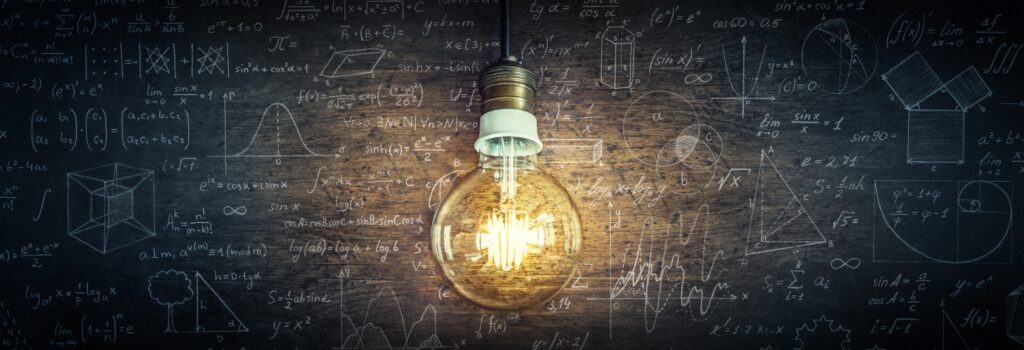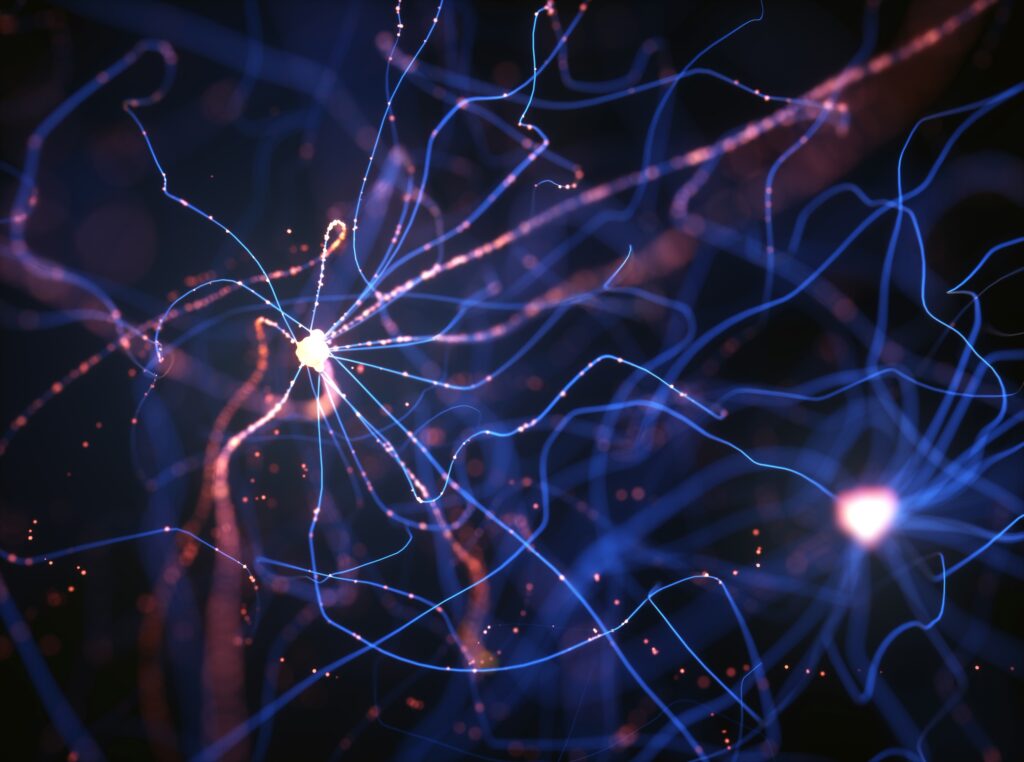The birth of Idealism in the West (The Return of Idealism)
Reading | Metaphysics
![]() Prof. Tom Rockmore, PhD | 2024-01-07
Prof. Tom Rockmore, PhD | 2024-01-07

Parmenides’s cryptic claim that thought and being are the same has echoed throughout Western philosophy. In this first instalment of our new series, The Return of Idealism, in partnership with the Institute of Art and Ideas (IAI), Prof. Tom Rockmore argues that in making this claim, Parmenides set the foundations for the struggle between idealism and realism, and suggests that unlike many interpretations, Parmenidean idealism ultimately supports the view that we cannot know a mind-independent reality. This essay was first published by the IAI on the 4th of January, 2024.
Philosophy seeks to arrive at, analyze and choose between different views against the background of the ongoing philosophical tradition. Many exponents of philosophy, talented or otherwise, believe that, in at least some instances, there is a correct answer to the difficult questions that continue to attract philosophers. Others, including myself, believe that we cannot go further than framing or at least seeking to frame philosophical questions in the most useful ways possible. This includes what we might consider to be the correct approach to answering a question. But it need not include anything so grand as proposing a solution to any philosophical concerns.
According to Plato, Parmenides, a sixth century pre-Socratic thinker, invented what has since been known as philosophy or perhaps more narrowly Western philosophy. Numerous other qualified observers also believe that Parmenides began Western philosophy, and that once it began, philosophy has always been and still remains Platonic. The relationship of Parmenides to Plato is crucial but complicated. Parmenides advances a theory of knowledge according to which we can, or at least hope to know in some general way. He famously believed that thought (or thinking) and being (or reality) are the same. The meaning of this claim is uncertain, but one way it can be read is as a defense of philosophical idealism. Parmenides then can be seen as the first idealist in the Western tradition. What is more, his idealism is a form of anti-realism, the view that we cannot have direct knowledge of reality.
Parmenides on Thought and Being
There is a difference between Parmenides, who began philosophy, and later thinkers beginning with Plato, who sought to build on the Parmenidean view. Parmenides formulated what according to Plato and others became the initial view of philosophy which echoes through the entire tradition, that thought and being are the same. In his claim that thought and being are the same, Parmenides seems to be suggesting that cognition depends on either or both of two basic claims. One possibility is that he is making the ontological claim that when we know something we know mind-independent being, that is, the way the mind-independent reality is. The other possibility lies in the view that we do not and cannot grasp the mind-independent world as it is, but cognition is still possible through an indirect grasp, by the construction of the cognitive object.
At this point in many texts, one might anticipate a series of learned remarks, often of a philological nature, since Parmenides wrote in ancient Greek, intended to demonstrate the true meaning of the Parmenidean view. This seems unnecessary in the present context. Suffice it to say that Parmenides neither demonstrates nor attempts to demonstrate his thesis which, since pre-Socratic philosophy, continues to function as the only universal criterion of knowledge.
Rationalists like Descartes and empiricists like Locke agree we can know the mind-independent real but differ about how to do so. Others believe that at the end of the day there has never been any progress towards that goal. The alternative to these options of naive realism and extreme skepticism is epistemic constructivism, which I will understand as a three-fold claim: (1) we must avoid cognitive skepticism; (2) though we cannot demonstrate or otherwise show that we know the mind-independent real; (3) we can avoid skepticism since we can at least demonstrate that we know what we construct.
Plato’s development of Parmenides
It is often said that Western philosophy begins in Plato, not Parmenides. But if Plato is a post-Parmenidean beyond just coming after him time-wise, then he does not break with, but rather builds on and further develops the Parmenidean theory. Philosophy then starts with Parmenides, as Plato himself thought.
Plato states a version of the relation of his view to Parmenides in several places, perhaps most famously in the tenth book of the Republic. According to Plato, knowledge is based on mimesis, or imitation. He claims that we apply a single form to the things to which we apply the same name.
Take the example of a piece of furniture. Socrates believes craftsmen who, in the process of making things, for instance beds and tables, rely on pre-existent images, which they do not create, but only use as a model for different kinds of furniture. According to Socrates, no individual makes the form of the thing, such as the table or a chair.
The suggested demonstration culminates in a three-fold distinction on three different levels between three kinds of beds. They include (1) the form of a bed that no human being but only a god can make; (2) for instance, the work of a carpenter who relies in turn on whatever the god creates in the process of naming, and (3) the painter who depicts one or more pre-existent objects he does not create.
Parmenides sees the problem, which he formulates but does not solve, and which in turn Plato also sees and also does not solve. According to Parmenides, cognition is possible if and only if thought and being are the same. In the theory of forms, Plato seeks to show that there is cognition if there are mind-independent forms, which at least some gifted individuals can know. The required demonstration of the identity of thought and being lies in the Platonic view, which is intended to solve the Parmenidean problem. Plato’s suggested solution is his theory of forms, namely the identity between the object we do not make or construct and the object we can know or think. If this is true, then thought and being are indeed the same, and cognition is possible. Plato is attracted to this argument as a possible solution to the problem of knowledge, since he suggests, some exceptional individuals – men of gold- can grasp the forms, and therefore the mind-independent world. But the solution fails since even in the Republic itself, we never find out who these exceptional individuals are supposed to be – there are no men of gold.
Thought and being after Plato
The Parmenidean problem of cognition, which Plato failed to fully solve, arguably remains on the agenda of the entire later philosophical tradition, still unresolved. The Parmenidean view suggests there are two and only two general ways to know the world. Let us call them i) materialism (or realism), the view that we can and do grasp the mind-independent real, and ii) idealism (or anti-realism), the view that we can only interact, but never know the mind-independent world as it is.
Materialism is often described as a naïve doctrine that asserts, but cannot demonstrate, claims about the mind-independent world. Materialism is a strategy for cognition through the immediate or direct grasp of the way the world is. Materialists seek to demonstrate that we can have a direct, immediate grasp of the mind-independent world.
Philosophical idealism on the other hand is often understood as the view that mind is the most basic reality, whose inner essence is in some way mental. There are numerous kinds of philosophical idealism, including British and German varieties. Idealist thinkers claim we can only infer, but never know what appears to be the case. In modern philosophy, arguably the best-known idealist is Berkeley. The latter was an immaterialist, who denied the existence of matter in favor of a view of finite mental substance that he understood as a collection of ideas.
Kant and Idealism as Anti-realism
In following the path opened by Parmenides, we have distinguished two main cognitive strategies, namely materialism and idealism. The difference between the two cognitive strategies is clear. Materialism is a version of the familiar, realist correspondence view of truth. Materialists think, but cannot show, that our grasp of the real corresponds to what is. Idealists, on the contrary, think that, though we cannot grasp what is, through the interaction between the knower and the knowable, we construct cognitive objects that we know.
Idealist thought arises in Parmenides and continues in modern philosophy. The term “idealism” was initially used by Leibniz in 1702. Berkeley thinks idealism favors immaterialism, or the view that substance does not exist. Idealists, for instance the later Kant, are constructivists, not realists. Kant began as a representationalist, initially favoring the view that cognition requires the correct representation of the object. He later gave up representationalism in favor of constructivism. In the Preface to the second edition of the Critique of Pure Reason, Kant suggested that metaphysics, which previously assumed that knowledge must conform to objects, “must [now] suppose that objects must conform to our knowledge” (CPR B xvi).
If this is correct, then the complicated link between Parmenides, who precedes Plato, and Plato, who succeeds Parmenides, turns on demonstrating either one of two general claims. We recall that Parmenides believes that thinking and being are the same. This suggests that thinking and being are two names for precisely the same thing. On the other hand, it paradoxically also suggests thought and being are not similar but utterly different in every way.
Parmenides’s view that thinking and being are the same echoes throughout the tradition from the pre-Socratic beginning of the tradition right up until today. A turning point arises in the transition between two phases in the development of Kant’s position. The turning point occurs in the Inaugural Dissertation (1770). In his initial view, before the Dissertation, Kant defends a pre-idealist representationalist approach to cognition. In this early phase, he understands cognition as requiring an apodictic grasp of what is. After the Dissertation, Kant gives up any claim to apodictic knowledge in favor of his famous Copernican revolution.
In On the Revolutions of the Heavenly Spheres (1543), Copernicus proposes that geocentric planetary motion can be replaced by a heliocentric explanation. In the Preface to the second edition of the Critique of Pure Reason, Kant suggests that metaphysics, which previously assumed that knowledge must conform to objects, “must [now] suppose that objects must conform to our knowledge.”
Kant was a physicist. In the process of the development of his position Kant changed his mind. He initially held that there is a mind-independent world that we know to a later view and we know it. An example is Newton’s laws, which are supposedly unalterably true or necessarily correct about the mind-independent external world, and will never be superseded. In other words, Kant’s early view defends a view of science that claims but cannot show that we know the way the mind independent world is. In this initial phase of his development, Kant holds that we know what is necessarily correct since it cannot not be true. This view restates in different language the Parmenidian belief that knowledge requires a correct grasp of being.
Kant later changed his mind in adopting the basically different view according to which the cognition requires no more than the construction of what is on the level of thought. In this later phase Kant no longer believes that cognitive claims are unalterably true or even true at all, a view he abandons in favor of the belief that cognitive claims are not necessarily true but rather depend on our experience.
The evolution of Kant’s conception of knowledge runs from a stronger claim about the mind-independent external world before his Inaugural Dissertation to a weaker claim after the Dissertation about the way we merely experience but cannot know the world. More recent scientists think that cognitive claims are historically limited. In an informal statement, Einstein, the physicist, writes:
Physical concepts are free creations of the human mind, and are not, however it may seem, uniquely determined by the external world. In our endeavor to understand reality, we are somewhat like a man trying to understand the mechanism of a closed watch. He sees the face and the moving hands, even hears its ticking, but he has no way of opening the case. If he is ingenious, he may form some picture of a mechanism, which could be responsible for all the things that he observes, but he may never be quite sure that his picture is the only one which could capture his observations. He will never be able to compare his picture with the real mechanism and he cannot even imagine the possibility of the meaning of such a comparison.
Parmenidean idealism
Coming back to Parmenides and his claim that thought and being are one. Plato understood Parmenides to mean that the condition of knowledge is to grasp the unity of thought and being. Following that idea, Plato suggested that knowledge would be possible only if we could know the mind-independent world as it is. But ultimately his theory of forms failed.
The ancient Parmenidean claim runs through the philosophical tradition, returning in different forms in German idealism (e. g. Kant, Fichte and Hegel) in the canonical choice between thinking and being. But if demonstrable knowledge of the mind-independent real is the main thrust of the philosophical tradition, in other words, if materialism/realism is the dominant strain of Western philosophy, then Western philosophy fails. On the other hand, if constructivism is a plausible alternative, cognition can in principle be redeemed through the ongoing interaction between finite human beings and their surroundings, above all in Hegel’s view of epistemology as circular. Though Kant did not invent epistemic constructivism, he gave it a powerful impulse in his later view of knowledge in context. I conclude that we can and indeed must accept the Parmenidean unity of thought and being as a cognitive condition. But we must reject the unavailing effort to grasp the mind-independent real in favor of a constructivist account of objects as they emerge in experience.

Essentia Foundation communicates, in an accessible but rigorous manner, the latest results in science and philosophy that point to the mental nature of reality. We are committed to strict, academic-level curation of the material we publish.
Recently published
Reading
Essays
Seeing
Videos
Let us build the future of our culture together
Essentia Foundation is a registered non-profit committed to making its content as accessible as possible. Therefore, we depend on contributions from people like you to continue to do our work. There are many ways to contribute.















